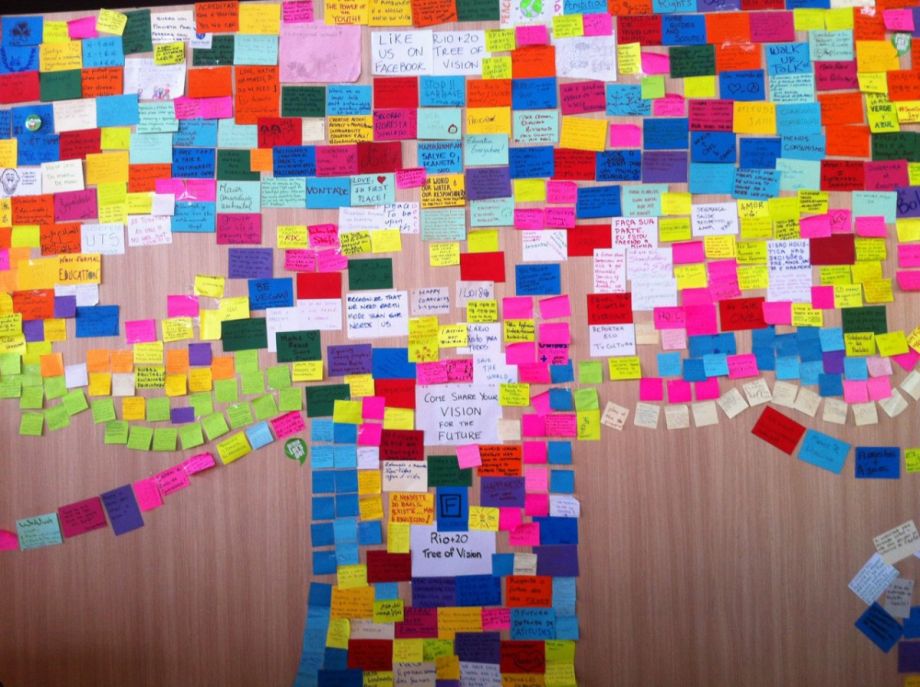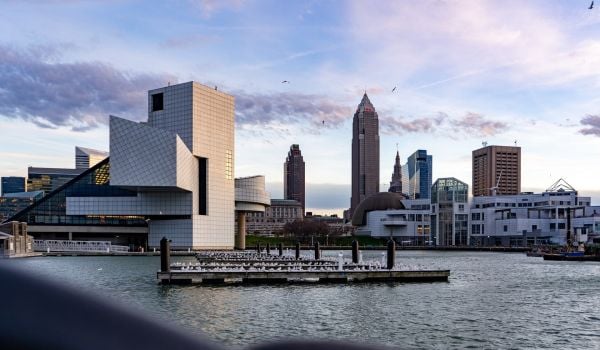The UN Conference on Sustainable Development (Rio+20 for short) kicks off this week in Rio de Janeiro, Brazil. Next American City will provide daily coverage of the summit by way of dispatches from Editor in Chief Diana Lind and correspondent Greg Scruggs.
The cloud around Rio+20 has made it difficult to enter without at least some sense of cynicism. In short, several sources have suggested Rio+20 was doomed to fail, essentially calling it an impasse between rich and poor countries, with the former refusing to assume commitments that the latter have pushed for in the draft of the ambitious UN climate change treaty that is expected to come out of the meeting.
The latest noise from the civil society groups — whose email list I have been monitoring — is disappointment that the latest version of the document, which will in theory be agreed upon by the various national governments before the end of the conference, doesn’t even live up to Eco 92’s statement of principles. According to the BBC, which obtained a draft of the 50-page document; it “gives developing countries much of what they have been asking for in terms of principles without agreeing to their demands for firm pledges of financial and technological assistance from the West.”
While the document commits to strengthen and fund the UN Environment Programme (UNEP) and to raise international standards for ocean protections, environmental and civil society advocates say the document stops short of advancing real progress. In response, they have launched an e-petition negating the optimistic slogan of Rio+20. In recent days, the cause has picked up traction on social media. In a YouTube video posted Sunday, Prince Charles weighed in with a royal sort of rebuke, decorously slamming the West as “a sleepwalker unable to wake up to the fact that so many of the catastrophic consequences of carrying on with ‘business-as-usual’ are bearing down on us faster than we think.”

Local activists have expressed dissatisfaction with the program at Rio+20. Credit: Greg Scruggs
The civil society groups fault the text for too much focus on economic growth (14 mentions) and not enough on environmental justice, planetary boundaries, sufficiency or limits (zero mentions all around). But is that surprising? “It’s the economy, stupid” appears to be the global rule of the day. Listening to NPR this evening, all attention was on the G20 summit in Los Cabos, Mexico — Rio has yet to make the U.S. mainstream media radar. And when it does, there is derision from the right and libertarian skepticism.
But then you walk the streets, hop the subway or stroll the conference grounds, and there is a sense of earnestness that is hard to ignore, much of it worn on the sleeve. Shirts proclaiming “End Oil $ubsidies,” “Stop the Belmonte Dam” and the Engrish “Vegan Make Peace” — which also netted me a tote bag, recipe book and free cookies — are a frank reminder that a lot of people here really seriously fear for the future of the planet and, more importantly, seriously believe that being in Rio de Janeiro for this gathering might actually help change that prospect.
Inside Riocentro, the main conference site, passersby were photo-happy with the display of children’s messages about the future they want. It was a flashback to the environmentally-conscious staples of a late 20th-century childhood, from The Lorax to Captain Planet to Fern Gully.
But we are no longer children. It’s substance that I’m looking for. Across the hall, a MoMA exhibit thankfully puts the urban issue front and center, as they highlight their curatorial history of rethinking cities (public housing in the 1930s, urban renewal in the 1960s) and a slate of recent exhibits, including the provocative Foreclosed show.
Finally, occupying prime real estate in the center of the main hallway, the Small Island Developing States (SIDS) had an informational booth set up. While the Maldivian president isn’t planning on holding any side events underwater — like his 2009 cabinet meeting — the canary-in-the-coal-mine phenomenon of the SIDS is real: They are the most in trouble and the least capable of doing anything about it when it comes to geopolitical, economic and emissions might.

Gregory Scruggs is a Seattle-based independent journalist who writes about solutions for cities. He has covered major international forums on urbanization, climate change, and sustainable development where he has interviewed dozens of mayors and high-ranking officials in order to tell powerful stories about humanity’s urban future. He has reported at street level from more than two dozen countries on solutions to hot-button issues facing cities, from housing to transportation to civic engagement to social equity. In 2017, he won a United Nations Correspondents Association award for his coverage of global urbanization and the UN’s Habitat III summit on the future of cities. He is a member of the American Institute of Certified Planners.
















